
Leticia Martín: “My priority is to reach more people in the city”
This summer, the Grec Festival in Barcelona will live a new stage with Leticia Martín At the helm, art historian, musicologist and cultural manager. It is a figure for some little known, but with a solid trajectory that now takes the helm of one of the most emblematic festivals in the country.
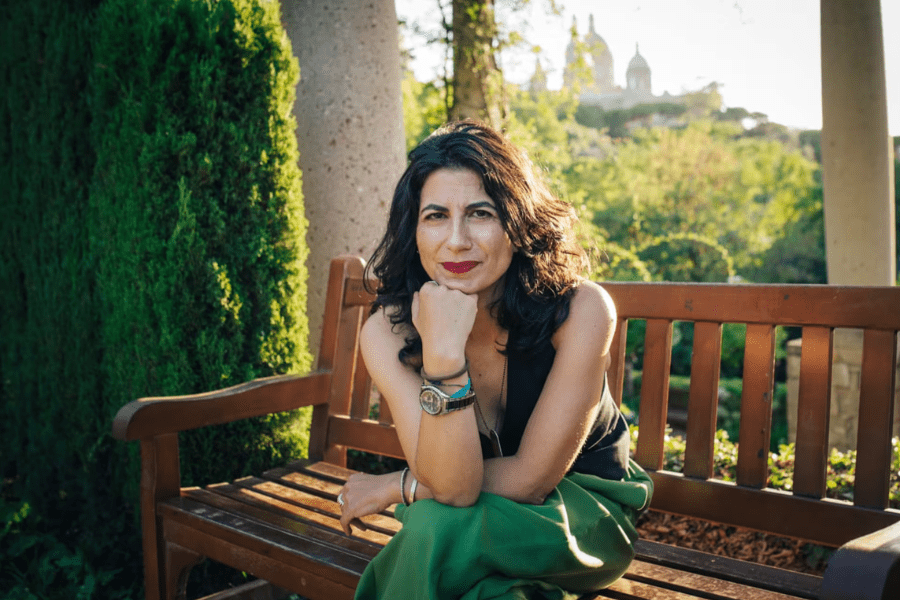
Leticia Martín Ruíz
What has taken you to Greek?
When the call to run the festival came out, I had been in the Liceu for ten years and I missed theater, dance … I think that in cultural management the projects must be moved from time to time. It is a job that needs great challenges. Now was the time to make a change, and the festival project was perfect for me, for my transversal gaze. I have worked with dance, with actors, with music, with theater. I had to try and that’s how I arrived here.
How did you feel about taking a festival with so much history?
At first I felt surpassed, but then I thought I didn’t have to go too far, not to get stuck or obsess with being or not at the height. The point is that I am already there. And, of course, it is a huge responsibility, it is the Barcelona Summer Festival. Now it’s time to work well, this is my job now.
“I found myself a very healthy Greek and with a lot of recognition: local, state and international”
What Greek did you meet and where would you like to take it?
The Greek I found is at a very healthy moment, with a lot of recognition: local, state and international. The only thing that can be done now is to strengthen all this. Given the situation, it is difficult for us to have more money. The only way to grow this positive reality is to network. This is my permanent goal: to look for more alliances everywhere and make what we do is useful to the whole society – both for artists and for producers and the public.
Can grow more, the Greek, still?
You can always grow. But you have to do it creatively. We usually think that in order to grow you need more budget. Maybe now is the time to think differently, with more creativity, and especially exploring all the possibilities.
What has been your first major decision or personal bet on this Greek?
Without a doubt, the choice of the team. When I arrived, the festival was at a time of many internal changes. On the one hand, there was a part of the fixed team that needed to know the new direction, and on the other I had the opportunity to incorporate two people who are working next to me: the Núria Ramis and the Montse Portús. This has been the first big decision and I like to think that also the first success. I have a feeling that we are a team that grows together and that we are strengthened day by day.
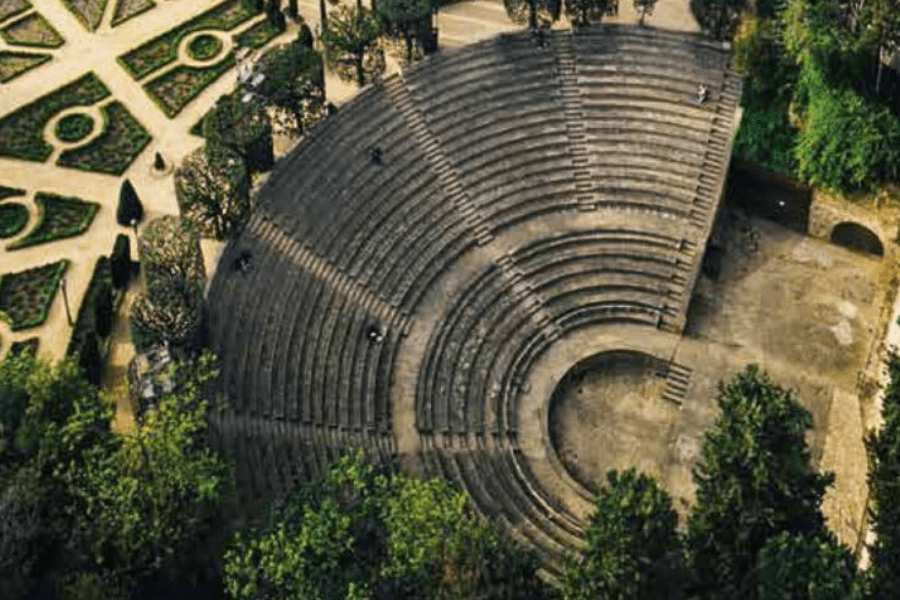
Many were waiting for a radical turn with the Greek or maybe rupturist. Have you planned to do it later?
No, a breaking turn would not make sense. The Greek has several very clear responsibilities. One is to be an open window to the most avant -garde international program, in dialogue with Europe and with other festivals. The other is to support local creation. With these two functions, you cannot take a radical turn. In addition, in order to do so, the budget would need to be tripled. If you know in what league you play and what your possibilities are, you see that there are not so many options for quality and interesting programming. There may be changes in some sensitivities or how we call things, but it will never be a radical turn.
How can Greek reach new audiences?
This is one of the great battles of Greek, and of culture in general. We have done a study of audiences and the most amazing thing is that every year there are between 4,000 and 5,000 people who sell for the first time in Greek. For me, the great challenge is to get those who come once, to return. Also that is why I want to talk about Greek as one thing, without as many divisions as Greek city. I think there is an audience that consumes culture regularly, but it does not dare to explore other proposals because it thinks that it will not feel comfortable or will be tried. You need to give confidence to these people to try new things.
“The great challenge is to get those who come once, return”
I suppose this also has to do with the balance between more risky proposals and more commercial proposals.
I have said from the beginning that my bet is for quality and contemporaneity, but without prejudice. I have said this phrase many times, but I really believe. We are not in a time of Talibanisms. We are fortunate that many ways to do, and to strengthen one, you do not have to disqualify another.
And the young audience?
The young audience needs proposals that awaken curiosity, to have rhythm and surprise. And obviously at a good price. And the Greek offers it. The prices are very competitive. We are a public festival, and I think we are a good gateway to new audiences.
What is the relationship with the so -called Greek city, what is seen outside of Montjuïc, and how would you like it to be?
This year I made a first gesture of which I am very happy: a negotiation with the theaters and tickets because the gift check Christmas can be redeemed at almost all the theaters of the festival. This is a way to make it easier for people to reach more shows, and also opens a more direct conversation about the content. All theaters know that not everything is worth it. We need to talk about what we program, who and why. This conversation can lead us to solutions more consistent with my idea of festival.
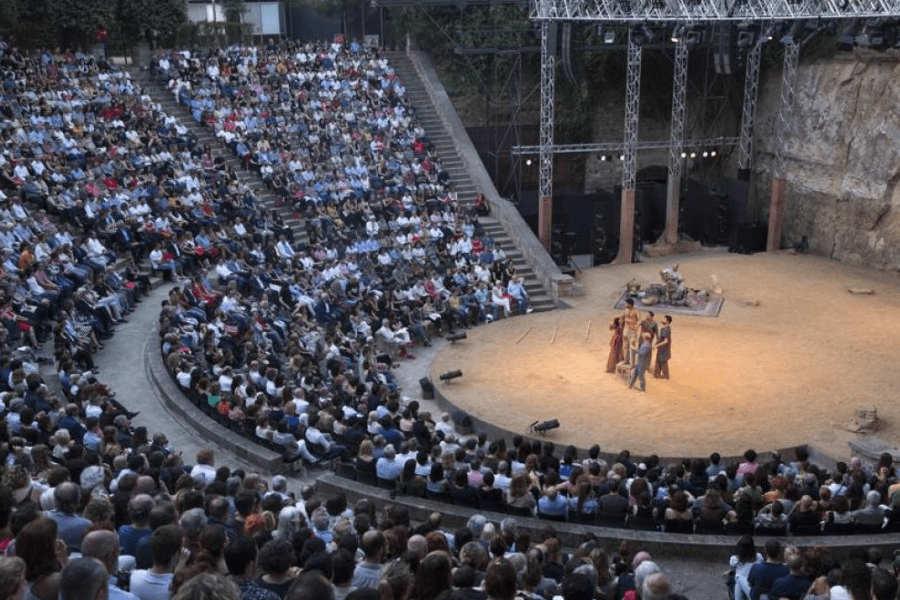
In a country with as many stage festivals like Catalonia, what does the Greek make unique?
Being the Barcelona Summer Festival is already very important. We will never be a “city festival”, because we have millions of tourists and it is a very large city, but I would like to think that, among the people who visit us, there are those who are waiting to find some interesting cultural proposal, or just live a different night at the Greek theater. It is also a festival that includes all the disciplines: music, theater, dance, circus, visual arts … It all makes it very special. It is a festival for everyone.
And is the tourist, a potential public of the Greek?
We would really like it yes. It is a festival designed mainly for those who live here, but we must not forget that Barcelona is also its visiting people. You need to find ways to communicate better, and make it easier for you to buy tickets at the last minute. But right now my priority is to reach more people in the city, and then start this dialogue with tourism.
“It is the responsibility of Greek to arouse curiosity and break the fear of doing different things”
What can be done from public festivals like Greek to support creators and improve the impact of their projects?
I think you need to collaborate more. Talk about the possibility that works have a longer life, generate real circuits. And also make known other artists and productions to programmers who may only know the most mainstream. It is our responsibility to arouse curiosity and break the fear of doing different things.
Is there competition between festivals?
It should not be there. There must be dialogue and I think that in my case and in, for example, Highthere is a desire to speak and share the trip. And this is important.
How is Leticia Martín as a spectator?
I am very omnivorous. I really enjoy seeing things outside of Barcelona because I think they have another energy. And if you do not look at it from an institutional point of view, if you are not thinking if the artist will present you a project, you can see things with another look. I could never say that I have a favorite artist or style. It depends on the moment. It’s like my Spotify list: If you look at her, you would think that I am twelve different people.
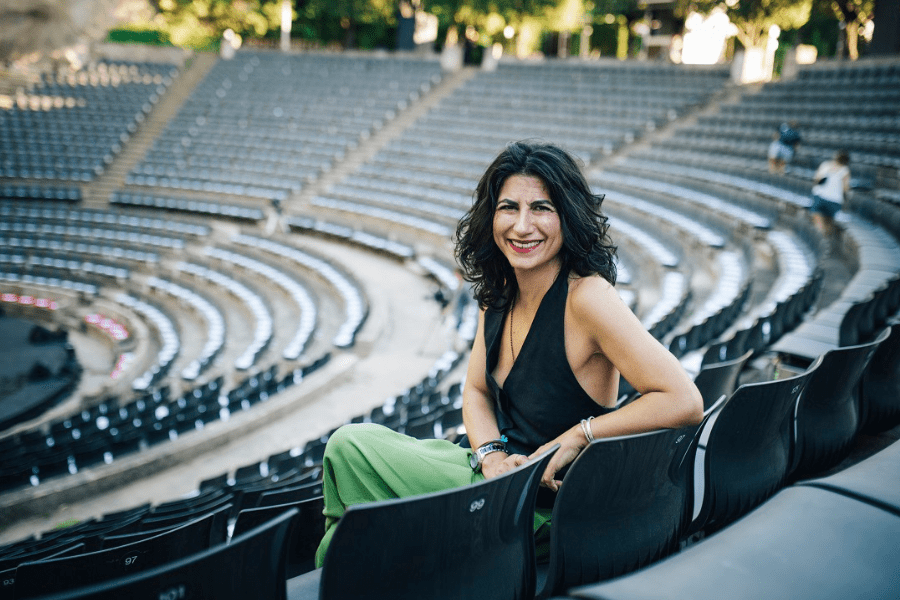
What was your first Greek as a viewer? What do you remember?
I remember with great pleasure a concert of the Kronos Quartet with Alba G. Corral and Maria Arnal. I don’t remember exactly the year, but it was very special. I think it was not my first time in Greek, but it is the clearest I have. In fact, I probably went to Greek things without knowing that they were from the Greek. Until he had been living in Barcelona for three years, he had no clear awareness of the festival.
Which artist or creator would you like to invite the Greek to?
Hey, thousands. I couldn’t choose one.
Does any spoiler about the 50 years of Greek will hold in 2026?
The 50th anniversary must be celebrated, but I am still thinking if all the programming must be articulated around this event, or if you have to do only a few special moments. I’m still drawing. And I will not do any “spoiler”.
All the programming of the Grec Festival of Barcelona, here.
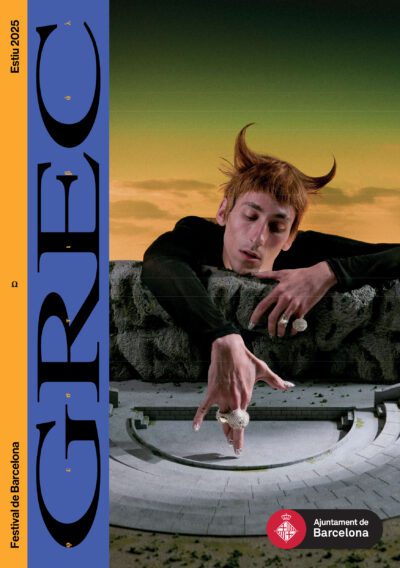
Greek Festival 2025
June 26, 2025 to 4 August 2025
The 2025 edition of the Grec Festival of Barcelona will be held from June 26 to August 4 with a program that includes 88 stage proposals, which include circus and dance, theater and concert shows. The new summer meeting brings together local and international artists and companies and gives a prominent role […]
The 2025 edition of the Grec Festival of Barcelona will be held from June 26 to August 4 with a program that includes 88 stage proposals, which include circus and dance, theater and concert shows. The new summer meeting brings together local and international artists and companies and gives a prominent role […]








